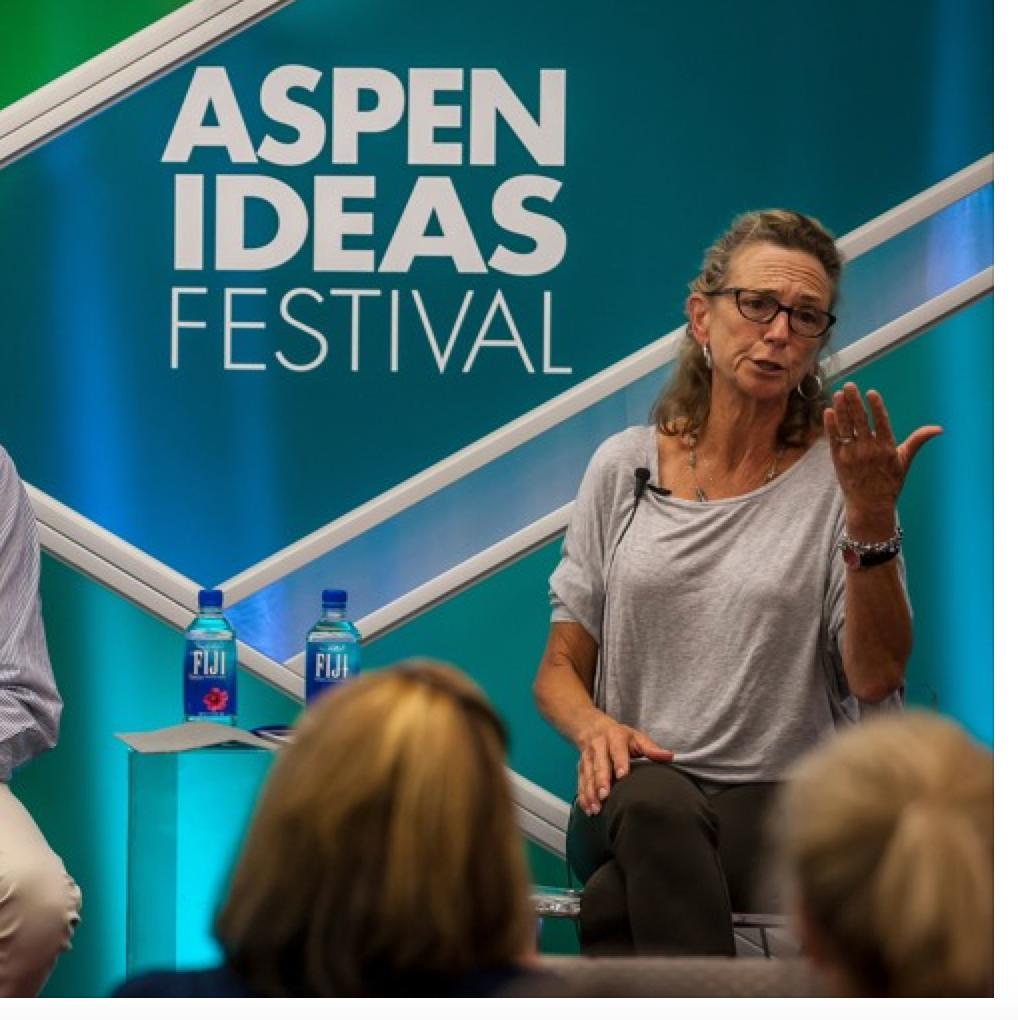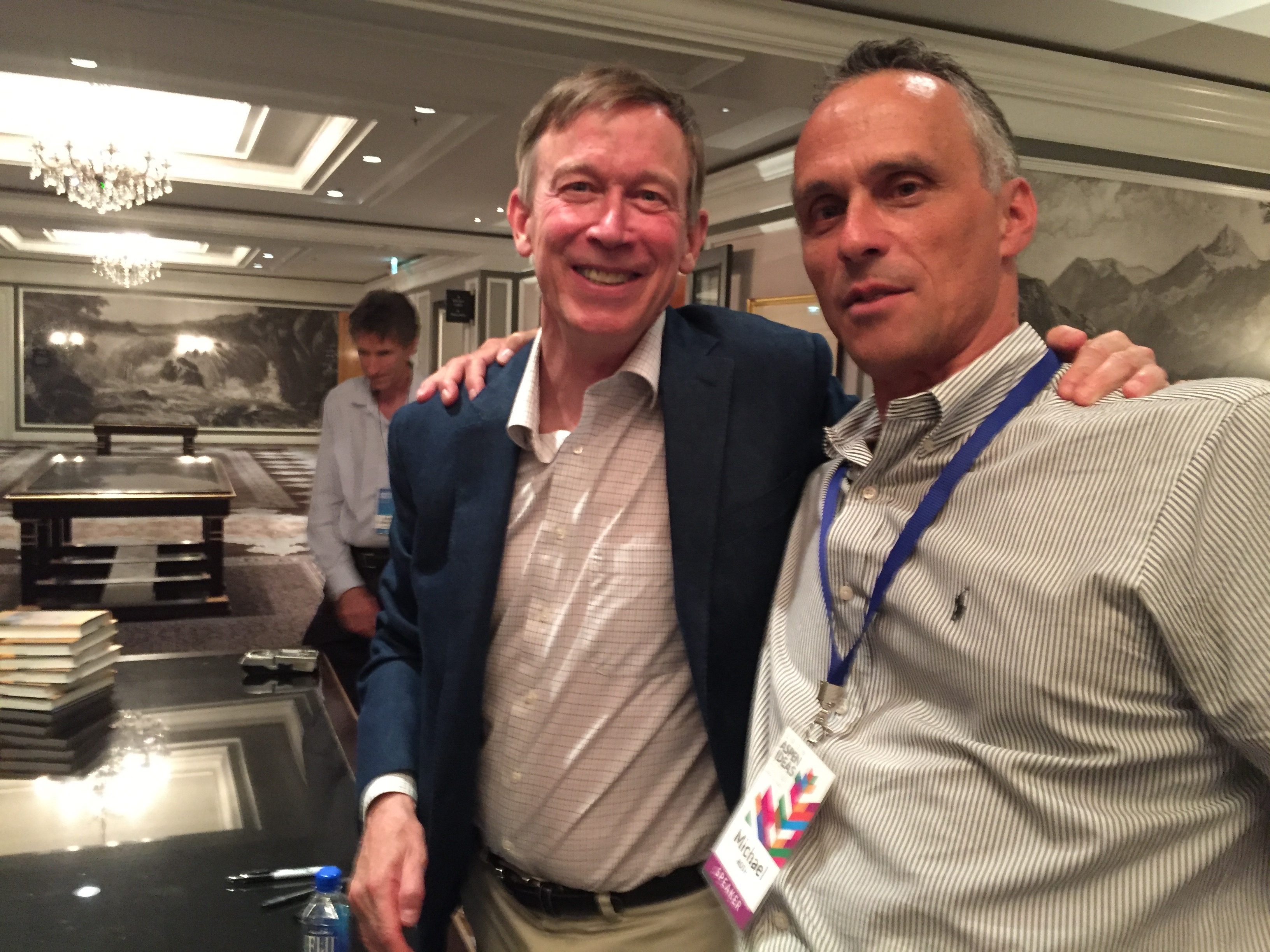At the beginning of this month, Kari Weil and I made a brief trip to Colorado to participate in the Aspen Ideas Festival. This brings together a few thousand curious and thoughtful people to hear talks from artists, academics, politicians, writers and activists. The Aspen Institute and The Atlantic magazine put together the program, and we were both invited to talk about our work.
Kari was interviewed about her research in animal studies, starting from the incident at the Cincinnati Zoo with the gorilla Harambe. You’ll remember that a small child fell into the gorilla enclosure, and after his panicked parents alerted the zoo’s staff, Harambe was shot. The boy (whose name I still don’t know) was saved—though it will always remain unclear whether his life was really in peril. As Kari said in her Aspen conversation, the aftermath of this event tells us much about key issues in animal studies.

I was put on different panels with college presidents and others to talk about online international educational exchanges, the challenging issues in the future of higher education, and current tensions between a commitment to free speech on campus and calls for safe spaces and trigger warnings. That last topic was considered by a rather large group of lawyers, professors, administrators, faculty and students. You can watch the session here, though I warn readers that it is long.
During that panel discussion I found my commitment to free speech challenged because I am unwilling to declare myself an “absolutist” in this regard. I have a substantial and broad commitment to freedom of expression, and, as I have written on more than one occasion, it is a fundamental value of education and democracy. I just recognize it’s not the only value at the core of these enterprises.
There are some things I don’t think a university should legitimate or dignify under the rubric of protecting speech. When we make a subject part of a debate, we legitimate it in ways that may harm the educational enterprise. Moreover, there are always things that an institution or a culture doesn’t dignify by debate. Hate speech and harassment fall into these legal or procedural categories at many places now, but there are always some things that are deemed beyond the borders of legitimate debate in a given setting. Speech is never totally free.
This is not an excuse for political correctness, nor is it a cover for censorship. I only want to recognize that we have real borders for discussion, no matter what our abstract commitment to freedom. Yale Law School professor Stephen Carter and I took different approaches to this question, as reported here.
Today, we see an accelerating coarsening of political discourse, as topics that inspire hate and violence are legitimated by political candidates and would be revolutionaries alike. To refuse to dignify discourses of despicable racism and terror with an educational platform is not an abdication of one’s commitment to speech but a recognition that speech always takes place in a context, in a culture.
These are complex matters, to be sure, and I certainly do recognize that the best way to think them through requires freedom of expression. It also requires a recognition of the rights of those who participate in the conversation. Happily we are able to protect all these things at Wesleyan.
One of my favorite moments at Aspen was saying hello to Governor John Hickenlooper ’74, MA ’80, Hon. ’10. This great force for good things has just published a memoir, The Opposite of Woe, with plenty of interesting stories about Wesleyan in the 1970s and politics over the last 20 years. A wonderful read! (Learn more in this interview with Hickenlooper in Wesleyan magazine, and this Careers by Design podcast).



